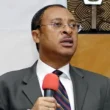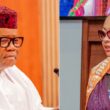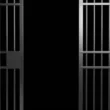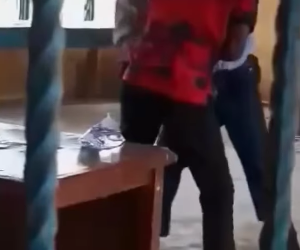The Inter-Governmental Action Group against Money Laundering in West Africa (GIABA) has revealed that between between $88 billion and $94 billion is stolen every year.
Edwin Harris, the Director General of GIABA, made this known in a speech delivered on his behalf by Tim Melaye at a stakeholder event on asset recovery and management held in Abuja on Tuesday.
Speaking at the event organized in partnership with the Centre for Fiscal Transparency and Public Integrity (CFTPI), Harris referenced findings from a United Nations Economic Commission for Africa (UNECA) report by former South African President Thabo Mbeki.
That report initially pegged Africa’s annual losses at $50 billion. However, Harris noted that updated figures suggest a much higher loss, now estimated between $88 and $94 billion.
“Where is this money? How do we recover them? Those recovered, how do we manage them? How do we ensure that the recovered loot is not re-looted? So many questions begging for answers. I leave you with the answers in your hearts,” he said.
He called for increased cooperation among African nations to reclaim these stolen funds and bring them back to the continent, where they could be used for public development.
Dr Umar Yakubu, Executive Secretary of the CFTPI, also spoke at the forum. He noted that asset recovery is not just a legal process but also a way to rebuild public trust and drive national development.
“The issue of asset recovery is not merely a legal or financial matter; it lies at the very heart of our nation’s development and the trust we strive to build between the government and its citizens,” Yakubu said. He explained that funds hidden abroad or within the country could instead be used to support education, healthcare, and other critical services.
Also speaking, the Chairman of the Independent Corrupt Practices and Other Related Offences Commission (ICPC), Musa Adamu Aliyu, SAN, noted the importance of joint efforts in the fight against corruption. “Let us come together to recover assets beyond the African continent,” he urged.
The Chairman of the Economic and Financial Crimes Commission (EFCC), Olanipekun Olukoyede, represented by Director of Asset Recovery Gbolaho Lotana, said the EFCC had been committed to asset recovery in recent years. “At EFCC, we have come to realise that the anti-corruption fight goes beyond arrest to asset recovery and management,” Lotana said.
Panelists at the event included Auwal Rafsanjani, the Country Director of Transparency International Nigeria, and representatives from the ICPC, EFCC, and Code of Conduct Bureau. The session was moderated by Emmanuel Akomoye, the first secretary of the EFCC.









